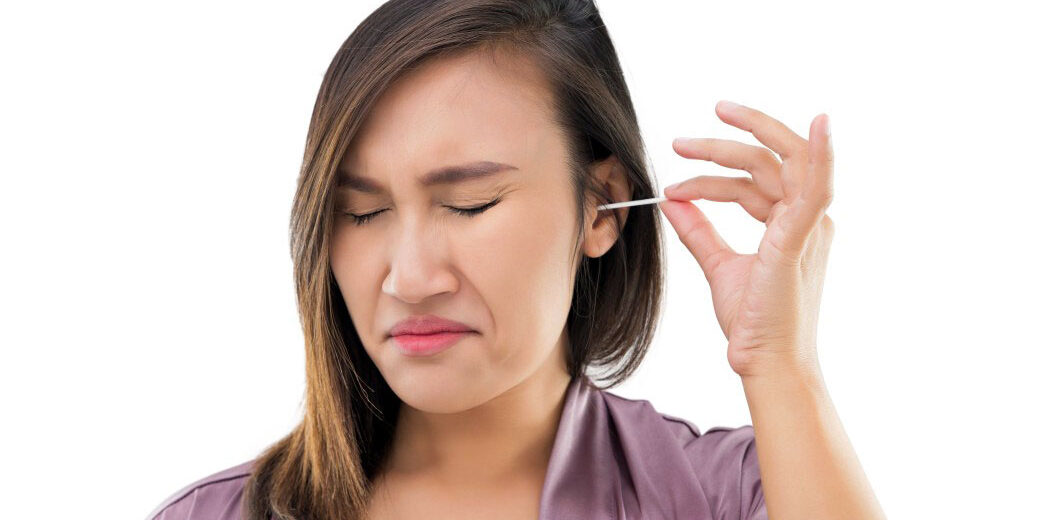Produced by glands in the ear canal, earwax helps protect the eardrum from infection and damage. A waxy substance, earwax helps trap bacteria, dust, and other foreign particles from entering the ear. Earwax also helps protect the skin of the ear canal, which is delicate and helps keep our ears moisturized. If we had dry, itchy ears, it would be prone to infection. However, even though earwax does a terrific job cleaning and protecting the ears, it can cause some sticky situations with our hearing if our earwax becomes built up in the ear. Unfortunately, earwax buildup can affect a person’s ability to hear, so being educated on treating earwax buildup is necessary. While earwax usually makes it way out of your ears on its own, there are instances where earwax buildup can occur.
Treating earwax buildup is necessary to prevent earwax blockages, which can cause hearing loss. However, many think that they are preventing earwax buildup when they clean their ears with cotton swabs, but they are contributing to the problem. So before you pick up that Q-Tip, check out this helpful advice on how you can prevent and treat earwax buildup.
• To help prevent earwax from hardening, it is helpful to know the signs and symptoms of excess earwax buildup. Dizziness, earaches, partial hearing loss, tinnitus, and experiencing a sensation of fullness in the ear are all symptoms of excessive earwax in the ear canal.
• Thoroughly drying your ears after being in contact with water is necessary if you want to keep your ears healthy. So make sure you dry your ears with a soft, clean towel after you shower or swim.
• If you wear a hearing aid, it is essential that you have a routine ear exam every 3 to 6 months. Wearing hearing aids, especially for prolonged periods of time, can cause earwax impaction.
• Never use cotton swabs, toothpicks, hairpins, and any other small item to clean your ears. Q-tips and other objects may remove the superficial wax, but it can push the rest of the wax down into the ear canal.
• You can use over-the-counter softening ear drops or a bulb-type syringe to gently irrigate the ear if you don’t have tubes or a perforated eardrum. However, make sure you don’t over clean your ears. Doing so can irritate the ear canal and can cause an infection.
If you have severe buildup, and at-home methods have not been successful, seek medical treatment from a hearing care professional.





